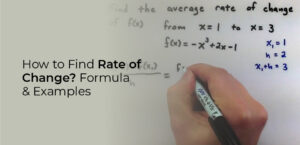What Increases Your Total Loan Balance? As you make repayments, you can expect your loan balance to decline over time. Despite paying back the loan, however, the amount can also rise.
Nearly half of student loan borrowers are further in debt five years after they begin repaying their loans.
In this post, we examine what increases your total loan balance, what interest capitalization is, and how you can avoid it. Who wants to pay back a student loan – or any other loan – for the rest of their lives?
What Makes Loan Balances Go Up?
In general, loan providers plan your repayments so that, over time, the size of the outstanding balance will decrease. Progress will initially be modest due to capitalized interest.
However, as the total value of the loan declines, so does the balance. Eventually, your interest payments will be minimal, and you will repay the loan in full.
The term capitalization of interest refers to adding the unpaid interest to the principal (the amount you borrowed initially), which increases both the principal and the interest you’ll have to pay.
Repayment depends on the loan term. Federal student loans, for example, have a repayment period of 10 years; private loans range from five to 15 years.
However, there are many factors that can hinder your loan repayment progress – some of which you wouldn’t normally consider. Now let’s discuss what increases your total loan balance.
Paying Less Than the Requested Amount
Even if you pay less of your loan back than the requested amount, its value can still rise.
How does interest capitalization affect a loan? It results in exponential increases in the outstanding balance.
Consider, for example, a $40,000 student loan with a 5% interest rate. The loan term is 20 years. By repaying $1,000 at the end of the first year, you will reduce the principal to $39,000.
Nonetheless, the lender will charge $2,000 in interest, bringing the total loan to $41,000 after the $1,000 repayment.
In order to reduce your debt, you must pay both the principal payment and the capitalized interest on your student loan each month.
In the above example, that would mean you’d have to spend more than $3,000 per year.
Delays in Paying the Loan Back
When you take out a loan, you don’t usually pay it back immediately. Depending on the purpose of the loan, there is instead a delay.
While attending university, most students do not make loan repayments. Thus, the capitalization of interest causes their loans to grow while they study.
In this example, a $40,000 loan compounded annually will grow to $48,620 over four years.
When you take your final exams, your loan balance will likely be higher than when you were a freshman.
Missing or Deferring Payments
Taking advantage of forbearance (where you temporarily stop making payments) or deferring payments will also capitalize a loan, in other words, increase its value.
At the end of their studies, most lenders give students a grace period of six months before they must repay their loans. In this way, they have time to find a job, start earning money, and meet some of their initial costs.
However, even during the grace period, interest continues to accrue on the loan.
Income-Driven Payments
Borrowers in income-driven plans are asked to pay back what they can afford based on their monthly salary, not amounts that will actually wipe out their student debt.
Therefore, loan repayment amounts are sometimes less than interest charges, causing balances to rise slowly over time.
Choosing an Extended Payment Plan
Loans with extended payment plans are typically repaid over an extended period of time, typically 20 years or more. The size of the loan is typically reduced over time, but at a much slower pace.
You end up owing lenders much more interest when you pay over a longer period. Due to the smaller payments, you have more disposable income today.
If you miss payments on an extended plan, your total loan balance may increase. During the first few years, payments usually cover only interest plus a small amount extra.
A single missed payment can put you back where you started.
Errors
As a result of calculation errors, balances or loan capitalization may increase. Even if you’ve been making all the correct payments, your balance suddenly shoots up.
A number of reasons can cause problems, including incorrect payment amounts, algorithmic errors, or mixing up your account with someone else’s.



